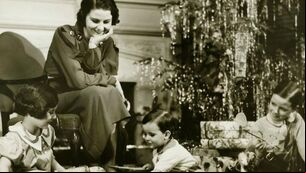Cork Views: Shhh! Noisy pubs are a pain in the ear-hole

If someone nearby is using a jack hammer or a JCB to carry out maintenance work, that’s not a problem. If a guy needs to use dynamite for essential repair work, that’s not a problem either. I’ll even sleep through it once I know there’s a reason for it.
But people shouting and roaring on their way home from the pub, blaring music, or dogs barking continuously for no reason whatsoever, are the kind of things that drive me to distraction.
I have particularly good hearing for a 66-year-old and one of the benefits of that is having the ability to listen to the TV and the radio with the volume turned down. It makes for a nice, peaceful environment, especially when I’m alone in the house.
That usually ends when someone else s me and I will invariably hear, “Will you turn that up a notch?” That’s code for raise the roof.
I was at a retirement party recently and the fact that it was a retirement function would surely suggest that a substantial proportion of those attending would likely be in the older age group.
So, you would imagine that the person providing the entertainment would realise that and select the music and volume appropriate for the occasion. Not so.
I had thought the event would be more muted, but as I approached the venue, I could hear the noise. I couldn’t decide which came first, the music or the vibration from it, but the result was the same. The DJ was obviously a lover of volume, and the more the merrier.
I knew a lot of the people at the function and hadn’t seen many of them for some time, so I was looking forward to a catch-up. I got myself a pint and spent the next half-hour shouting at a guy across the table from me. I was only catching part of what he was saying, and I was getting hoarse from roaring at him. In the end I couldn’t take any more, so I finished my pint and left.
They went to the door, wished the guy well in his retirement, and left again. This is not uncommon.
I attended a 60th birthday party recently too, and it was the same scenario. It shouldn’t require a huge amount of brain-power on behalf of the band or the DJ to anticipate once more that their audience would most likely be in the older age bracket, but it doesn’t seem to .
They never take that into consideration, which is a pity because that kind of noise can ruin a night out, and it’s not just me moaning about it. Everybody I talk to has the same complaint and it seems there is a good reason for it too.
According to the experts, as people age, their hearing undergoes several changes that can significantly affect their tolerance of loud sounds. The hair cells in the inner ear, responsible for transmitting sound signals to the brain, gradually deteriorate over time.
This deterioration can lead to a condition known as presbycusis, or age-related hearing loss, which makes it difficult to discern sounds, especially in noisy environments like parties.
Older adults often experience a reduced dynamic range of hearing too, meaning they find it harder to tolerate both very soft and very loud sounds.
Many people these days use hearing aids, and loud background noise plays havoc with their equipment.
Parties, with booming music, can therefore become a source of discomfort rather than enjoyment.
If this is such a well-known phenomenon, why do we persist in organising ear-drum shattering music at social gatherings?
And for those who suggest that it’s only the old fogeys who are giving out, maybe you should have a rethink because it could become your problem sooner than you realise.
According to an article in UK, it seems old age can start to kick in earlier than we thought. Researchers found that, on average, there were two waves of major changes, at age 45 and 60.
If you’re in your 40s and you suddenly find hangovers more painful, and aches and pains in general more frequent, scientists may have discovered an explanation.
A study has found signs that ageing does not advance at a steady pace. Instead, there appears to be at least two stages of rapid change in adults, one when people are in their mid-forties and again when they reach their sixties.
They also found numerous physiological changes that can contribute to increased irritability. The body’s production of certain hormones, such as testosterone and oestrogen, decreases, which can affect mood regulation.
Additionally, the brain’s neuro-transmitter systems may become less efficient, leading to mood swings and irritability.
That means those of you who have accused me of being a cantankerous old git were right all along, but there’s an explanation for it. My neurotransmitters are malfunctioning.
So, from now on, you need to make allowances for my irritability because it’s not my fault. Oh yeah, turn down the damn music too.







 App?
App?




